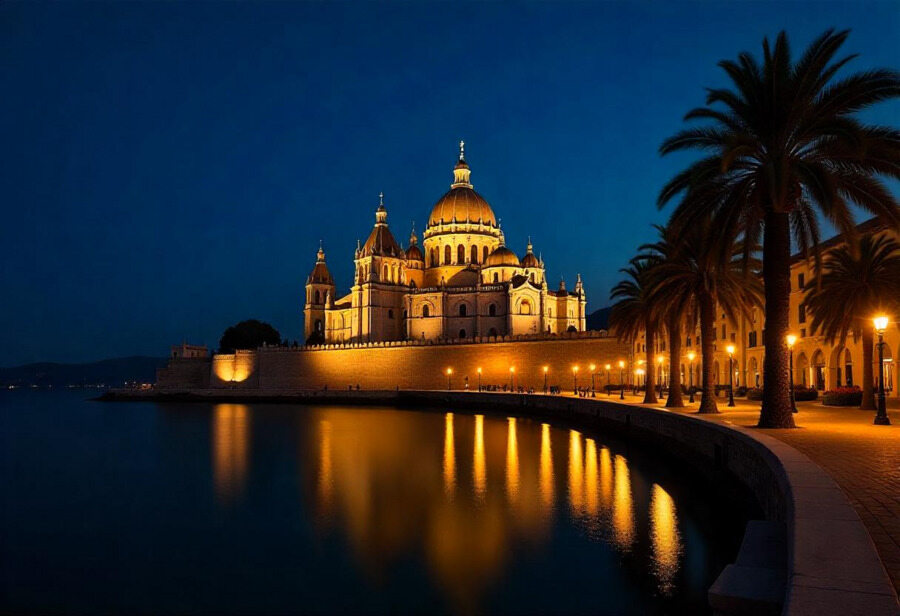≡-Mallorca To Host Mass Demonstrations Highlighting The Price Of Tourism On Resident Life, As Protesters Call For Stronger Regulation, Legal Reform, And Environmental Protections – Viral of Today
<> Viral of Today <>
Home » TOURISM NEWS » Mallorca To Host Mass Demonstrations Highlighting The Price Of Tourism On Resident Life, As Protesters Call For Stronger Regulation, Legal Reform, And Environmental Protections Monday, June 9, 2025Mallorca is bracing for mass demonstrations this weekend as locals rally to expose how unchecked tourism is straining housing, inflating prices, and damaging the island’s natural ecosystems—prompting demands for tighter regulations, legal reforms, and stronger environmental protections. Protesters say the island’s current tourism model has pushed residents to a breaking point, and they want lawmakers to act before the upcoming peak travel season makes conditions even worse.On Sunday, June 15, a coordinated wave of symbolic protests will unfold across Europe’s most popular but pressured travel destinations. From the sun-soaked beaches of Ibiza and Mallorca to the cultural centers of Barcelona, Granada, and San Sebastián—alongside other cities like Málaga, Menorca, Tenerife, Venice, and Lisbon—locals are preparing to take to the streets armed not with signs, but with water pistols. Their aim is not to disrupt tourists, but to deliver a striking and peaceful message: the current scale of tourism is unsustainable, and the time for serious action has arrived.Organized by a growing regional alliance known as the Southern Europe Network Against Touristification, the protests represent a symbolic call for change. The movement accuses governments and tourism authorities of neglecting the interests of residents while prioritizing the short-term economic benefits of high visitor volumes. The result, they argue, is a system that depletes local resources, inflates housing prices, and pushes communities to the margins in their own cities.Protesters will gather in historic plazas, coastal walkways, and city centers, using brightly colored water pistols to stage peaceful demonstrations. The visuals are meant to catch the eye and amplify the message: tourism, while valuable, has begun to flood and overwhelm neighborhoods, straining everything from housing markets to transportation systems.One of the leading campaign groups behind the protests has been vocal about what it sees as a turning point in the public’s attitude toward mass tourism. After years of quiet frustration, many residents are now openly criticizing how tourism has transformed their cities. Organizers argue that the recent push by local governments to attract even more visitors through billion-euro marketing campaigns and luxury development deals only intensifies the crisis. They claim that officials continue to greenlight projects that favor speculative real estate growth and high-end accommodations, while locals struggle with job insecurity, rising rents, and worsening access to affordable housing.In tourist-heavy regions like the Balearic Islands, the transformation is especially stark. Entire neighborhoods that once housed long-term residents have been converted into short-term rental zones. Traditional local markets are now dominated by souvenir shops and international chains. In popular coastal towns, traffic jams and pollution are frequent complaints, while natural reserves and beaches are facing environmental degradation from constant foot traffic and commercial activity.The upcoming protests aim to highlight these issues and push authorities to address what many see as a growing imbalance. Organizers are not calling for an end to tourism altogether. Instead, they want new regulations that respect the rights of residents, preserve cultural integrity, and protect fragile ecosystems. They’re advocating for limits on visitor numbers during peak seasons, restrictions on short-term rentals in residential areas, and more public investment in infrastructure that benefits locals as well as tourists.As the protests gain momentum, political leaders in several autonomous regions have begun responding. Tourism authorities from at least two major regions in southern Europe are currently in talks to develop a joint legislative strategy aimed at tackling the root causes of overtourism. These discussions include plans to draft new regulations, share legal expertise, and jointly advocate for national-level policy changes.The idea behind this collaboration is simple: by uniting their efforts, these regions believe they can enact more robust and legally defensible policies to manage tourism growth. Working together allows them to pool resources, create consistent guidelines, and reduce the risk of legal challenges from powerful business groups that often oppose tourism restrictions. In the past, attempts to regulate tourism have been met with lawsuits or intense lobbying from developers, hospitality associations, and international investors.Now, regional governments are signaling they’re prepared to take a firmer stance. Early drafts of potential laws include measures such as capping the number of hotel beds available in certain zones, banning new short-term rental licenses in overpopulated areas, and introducing seasonal quotas for cruise ship arrivals and large tour groups. Some cities are also exploring tourist taxes that directly fund resident services and environmental conservation efforts.For many residents, these conversations offer a sense of hope after years of feeling unheard. The protests are not just about water pistols or street marches—they reflect a broader movement toward reclaiming the identity, affordability, and sustainability of cities that have become almost unrecognizable under the weight of global tourism.In Venice, the introduction of entry fees for day-trippers earlier this year marked a significant step in rethinking the balance between tourism and livability. While controversial, the move has sparked similar discussions in cities across Europe. Lisbon, meanwhile, is grappling with skyrocketing rental prices as locals compete with property owners prioritizing short-term profits. In Barcelona, traffic congestion and overcrowding in iconic neighborhoods like the Gothic Quarter have triggered widespread complaints and sparked new debates on tourism zoning.Across all these cities, one common thread binds the protest movement: the belief that unchecked tourism is no longer a boon but a burden. While the economic value of the industry remains undisputed, campaigners insist that the time has come for smarter, people-focused tourism strategies that prioritize long-term resilience over short-term gains.Mallorca will see large-scale protests this weekend as residents demand urgent action against overtourism, citing rising housing costs, overcrowding, and environmental harm as reasons for calling for stricter laws and reforms.As June 15 approaches, the upcoming demonstrations will serve as both a protest and a proposal. Activists aren’t simply saying “no” to tourism—they’re saying “yes” to a different model, one that restores balance between visitors and residents, protects natural and cultural heritage, and ensures that local communities are not the ones left behind in the rush to attract the next million tourists.
This information will surprise you!
See also
- Read until the end to discover everything.
- Important information you need to know.
- Interesting facts and helpful tips.
Conclusion
Did you enjoy the news? Keep following us daily!













